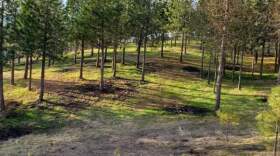-
As Valentine's Day approaches, we take a look at monogamy and its alternatives among animals — including humans.
-
Elephants use their trunks much like a human uses their hands: to pick up food and manipulate objects. A new study finds that tiny, specialized whiskers on elephant trunks help them do it.
-
Our brains aren’t wired to like the uncertainty that comes with change.
-
The fight to slow human-caused climate change has taken another major setback.
-
The four are set to dock with the space station on Saturday, returning the orbital lab to its full complement of seven. NASA's last mission, Crew-11, left a month early due to an ill crew member.
-
A massive star in the nearby Andromeda galaxy has simply disappeared. Some astronomers believe that it's collapsed in on itself and formed a black hole.
-
Veronika is a brown cow. Her ability to employ tools with multiple uses leaves her in the company of only two known species: humans and chimps.
-
On a trip through North East Washington in the 1970s, couple Lynn and Becky Miner fell in love with the stunning nature around them.
-
Skiers would typically use waxes with PFAS to lubricate their skis to go downhill faster.
-
Starting Thursday, the Environmental Protection Agency will no longer regulate pollutants from fossil fuels, such as methane and carbon dioxide, under the Clean Air Act.
Play Live Radio
Next Up:
0:00
0:00
Available On Air Stations






